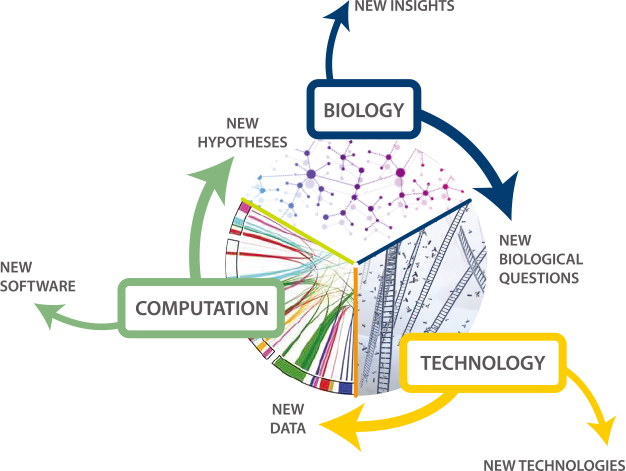Computational Systems Biology
Molecules, cells, tissues, organs, organisms and ecological webs are systems of components whose specific interactions have been defined by evolution. Understanding these biological components and their interactions is a central part of the research area of systems biology leading to practical innovations in medicine, drug discovery, and modern biology. To study them, we use quantitative measurements of the behavior of groups of interacting components, systematic measurement technologies such as genomics, transcriptomics, epigenomics, and proteomics, and mathematical and bioinformatic models to describe and predict dynamical behavior.
We are broadly interested in most aspects of computational evolutionary genomics and multi-omics data-driven systems biology of marine species.




